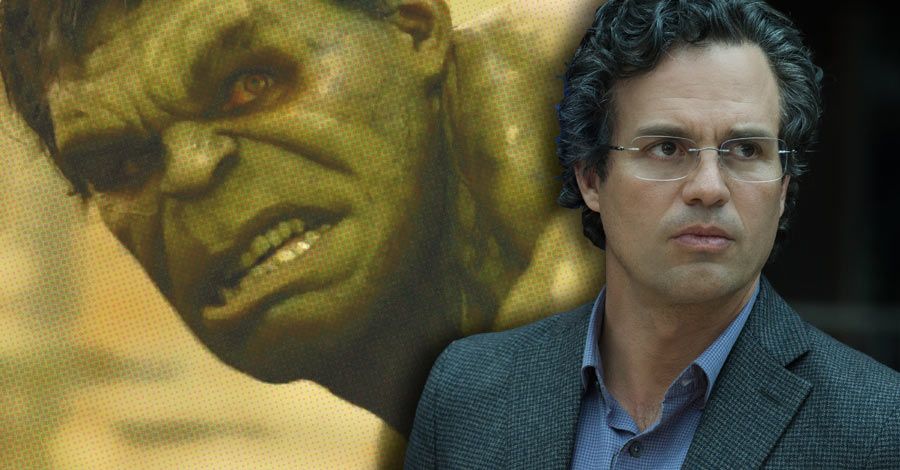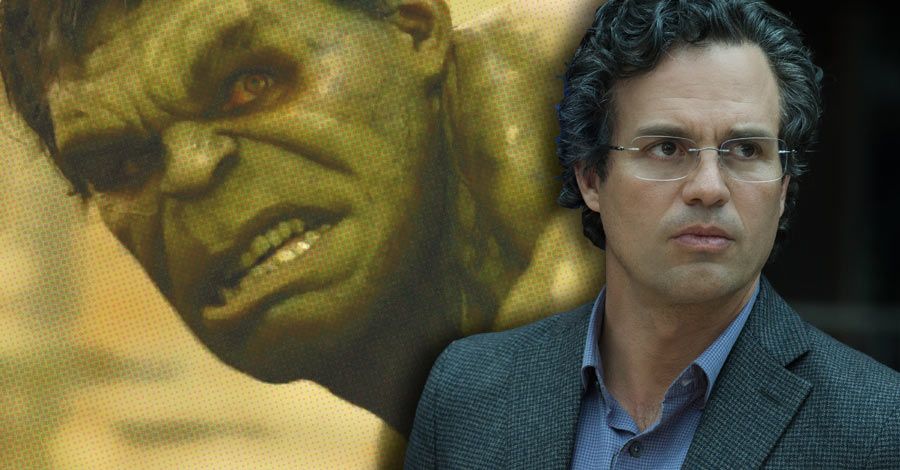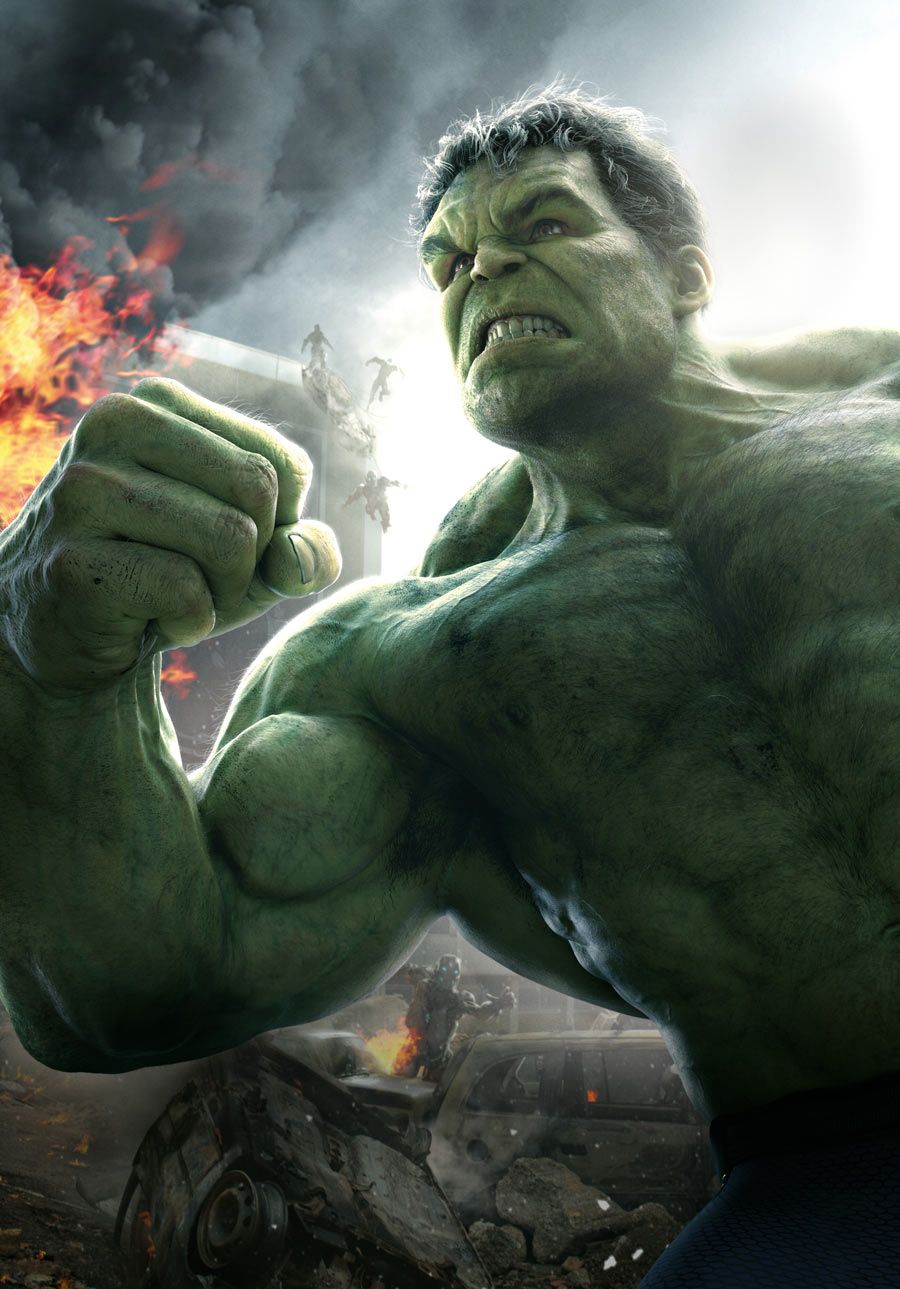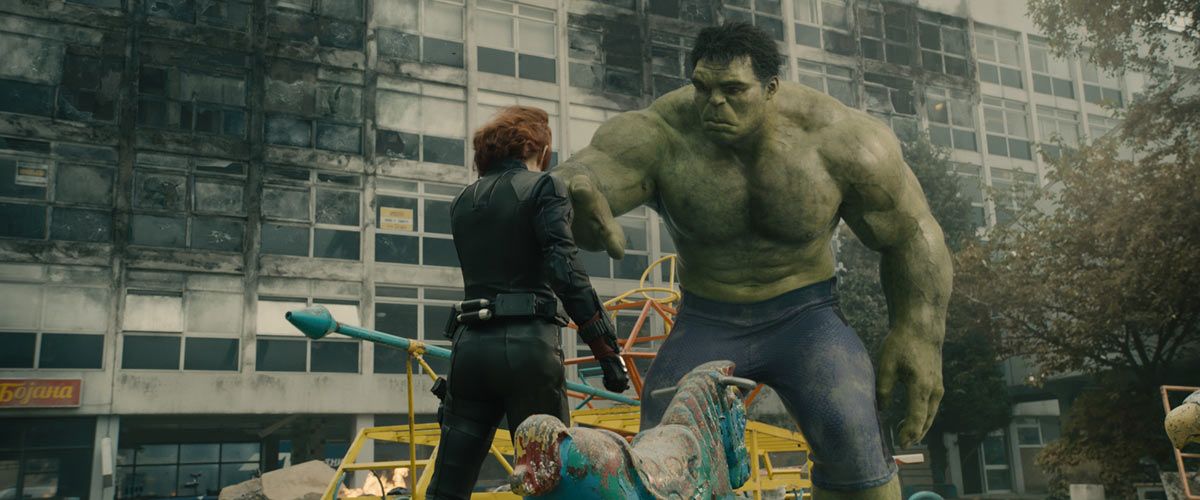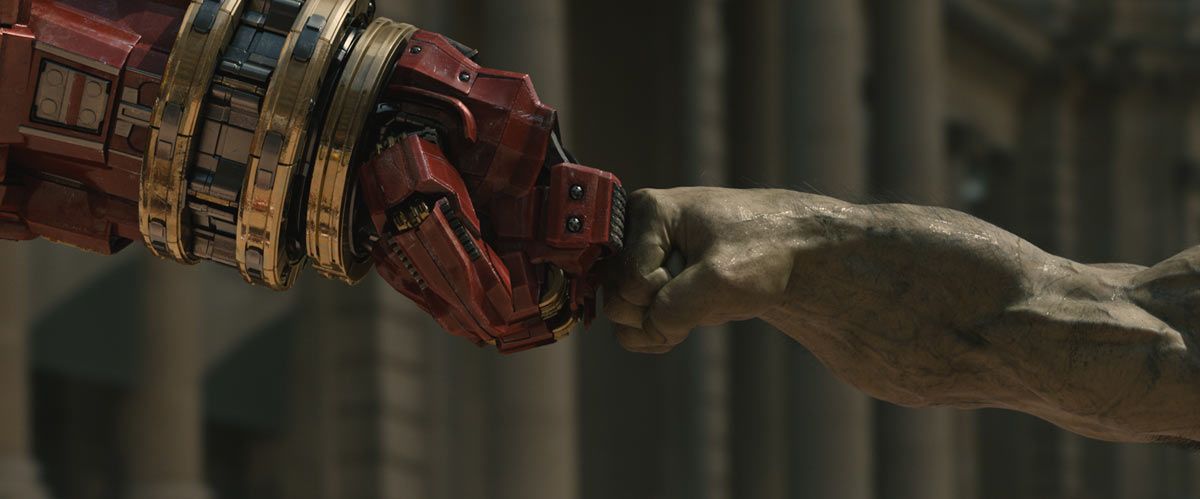SPOILER WARNING: The following interview discusses plot points and events from "Avengers: Age of Ultron"
Unlike his temperamental big screen alter ego, Mark Ruffalo's not in a Hulking-out place in his life.
It's a remarkably vibrant period in Ruffalo's career: after establishing himself as one of Hollywood's most consistently effective and appealing performers with an impressive and atypically diverse filmography -- including "Eternal Sunshine of the Spotless Mind," "13 Going On 30," "The Kids Are All Right," "Shutter Island" and his first foray into the Marvel Cinematic Universe, "The Avengers" -- Ruffalo reached an astounding high-water mark in 2014 with his much-heralded turn in the acclaimed HBO telepic "The Normal Heart," the warm and winning music-minded indie "Begin Again" and his Academy Award-nominated performance as Olympic wrestler Dave Schultz in the unsettling true crime drama "Foxcatcher."
REVIEW: "Avengers: Age of Ultron" is a Lot of Fun, a Little Flawed, and Whedon All the Way
Now returning his role with the biggest pop cultural profile, literally and figuratively, for filmmaker Joss Whedon's "Avengers: Age of Ultron," Ruffalo is back in the lab coat of rage-challenged, Gamma Ray-afflicted scientist Bruce Banner, as well as -- thanks to improved motion-capture technology -- the near-to-bursting purple trousers of the incredible Hulk, whom the film reveals has only just scratched the surface of his ability to smash even as he finds a spark of romance among the rampages.
in an one-on-one conversation with CBR News, Ruffalo reveals the depth of craft he's put into his dual performance -- and the thought he's devoted to where Banner and the Hulk might go once the threat of Ultron no longer looms over Earth.
CBR News: What got you excited with what you got to do with Banner and the Hulk in "Age of Ultron," taking it further from the first one?
Mark Ruffalo: Well, a big part of it was taking it further, and there was also a technological leap in the motion capture, where I didn't have to do the body motion capture and the facial motion capture separately. I could put those two together, which freed me up an enormous amount -- and actually made the motion capture aspect of it portable. We could take it to set, and I can act with other actors for the first time. That was also very exciting and the beginning, I think, of what can be really interesting places to go with the Hulk now that we couldn't go before.
So that was exciting to me, but also the personal development and the deepening and the opening up of my character, Banner, and this kind of vulnerability that we find him in because he's not on the run. He's sort of found a home and he's found a family. And that opens him up to a whole other host of feelings and desires that he could never entertain on the run the way he was before.
How much heads up did you get on the romantic development between Natasha and Bruce? Did Joss tell you way ahead of time, so you could sort of wrap your head around it? Or was it more along the line of the script showed up and you're like, "Oh..."
No, I got a heads up a little bit earlier. It was something that I sort of brought up when we were shooting the first one. Scarlett [Johansson] doesn't really know this, but I'm like, "Joss, I see something going on between Banner and Black Widow. When she comes to get him and this playfulness, and the way she tricks him again later." I was like, "I think there's something there." And he was like, "Hmm, that's interesting..." And then we split off and went our own ways, but I remained friends with him so I was always dropping in -- I love the guy.
I was shooting "Foxcatcher," and I was feeling particularly melancholy. I was like, "I'm going to call Joss and see what he's doing and see how the script's coming." So I wrote him an e-mail and he wrote me back and he's like, "Bro, I just wrote what I think's one of my favorite scenes ever." "What?" "Banner and Black Widow's getting together." I was just like, "That sounds great!" I didn't know if it was going to stay in it -- these things come and go -- so I didn't really get too attached to it, but I thought, that is so interesting. And where you can go with that could be so bittersweet, unrequited, and has all kinds of cool possibilities.
Where do you go in your head when you're performing the Hulk scenes, your Hulk acting? What do you find yourself summoning up to play that character?
It's so strange because it's inner and it's outer. It's involved and detached at the same time. I'm sort of watching myself because it's a little bit like puppeteering. You're using this overlay technology to create this character in a 3D sense. It takes space and has mass and all these things. And so you're looking at a screen, and you're seeing it being developed. And a lot of that has to do with how you move or the way you breathe. When you breathe as that character, you've got to make the movement of breathing because it doesn't know what breath is. So you've got to show the computer the breath. So you get this kind of movement and the mass. What are arms like that way, 800 pounds apiece?
All these elements are playing together at once, so you're sort of watching as a third eye. Then you're acting, but then you're also aware that you're just wearing a leotard, and you're never on a set. You're always in a room that's surrounded by green screen and cameras, so you're never really in a place. So you're really calling on your imagination, and it can be really frustrating sometimes.
You can find the rhythm of it -- there's also a rhythm to the character and a way he moves. You find it sometimes -- you're like, "I'm in it now. I got it." And then you lose it and you get it back again. It's not the most kind of performance-friendly space. Andy Serkis has done a lot of work to start to make it that way and to train actors to begin to think of it that way -- and the technicians to begin to think of it that way -- so whatever frustration that I was feeling is definitely there in the Hulk, and he's feeling it too. And it's calling on this primordial rage. It's rage that predates language, kind of. A three-year-old's rage. I always think of my kids Hulking out, and that's how I see the Hulk, kind of.
Did you evolve either Hulk or Banner in any way, philosophically, this time around? Differently from the first time?
Yeah, well, you're sort of building off what you did last time. You're coming into a whole new world in a way. But like I said, I think Banner is able to let his guard down a little bit so you have a little bit more of a vulnerable Banner -- and a Banner that is trying to be useful even in the face of this impossible thing, this beast inside of him. Trying to come as normal to a life as you possibly could have.
Then in the Hulk, what was interesting when we got into those Scarlet Witch nightmare for the Hulk -- which is the berserker Hulk, I call him -- I was really like, "What makes Hulk afraid? What scares the Hulk? Is it Veronica [a failsafe system designed to contain the Hulk]? No. It's Banner. Banner is what terrifies Hulk." That was something that I found one day on the mat. We were doing all these improvisations as a character. I liken Banner's sort of thing, or Hulk's thing, to like a bad acid trip. All these things coming out. I was playing with fear, which was a totally different thing. Hulk doesn't have fear. But all of a sudden, he's coming from nothing but fear. And then I just had this flash that it was Banner, and that was kind of an evolution.
That was a big leap. I don't know that I ever would have thought of that. But when I was in the middle of doing it as the Hulk, all of a sudden I started to realize, whoa. And how interesting that is and where you can go with that later. And these two beings fighting for supremacy and fighting to be dominant and be insistent and to stay. Hulk wants to stay the Hulk. And Banner wants to stay Banner. The comic books inform all that and there's so much to do in that. Now we can do it because we have the technology to do it.
Do you see a solo Hulk movie in the near future? Or do you like playing him more in the context of the Avengers?
I think why he works so well is because he is within the context of the Avengers. It's hard to tell a story about a guy who doesn't want to do the very thing that you want him to do, and you have two hours of that guy by himself trying not to do that. That's just a tough nut to crack.
But when you put that guy in a group of other people that are like him, that get him, that understand him, and you force him to be and to have to deal with those people in these different situations, then you get to see who that guy is. You get to see his charm, his personality, his sense of humor, what ticks him off, what he's afraid of -- all of these things, because we know people by how they interact with other people, in a lot of ways. So that was a stroke of genius. That's a place where Banner really works well.
I think it does work well there, and I do think there's a future. And I don't think it's one where it's just Banner maybe by himself... I'm not sure. We did the origin story of Banner, unless we go way, way back -- which we could do. I also think there's some really cool, interesting terrain to explore between Banner and the Hulk, like really, and that struggle between the two of them, and the melding of the two of them. So like we get a little taste of it when Banner comes out of the Veronica battle, the Hulkbuster, and he wakes up in the rubble, and the Hulk, you almost see the Hulk has a little bit of Banner's remorse, even before he turns into Banner. And where that seam is, there's some interesting stuff in there that I think we could explore.
You could even do a third personality, like they've done it on the comics, or where they fuse together...
Yes. I see that in the future somewhere.
The "Planet Hulk" storyline that gets brought up frequently -- is that something that's viable to you?
I don't know if you could economically pull it off. I just think it would be too expensive, really, to be honest with you. It would cost a fortune to have to do, I mean there's, God, 20 characters in there, at least. Plus, I think in "Planet Hulk," Banner only shows up once maybe in both comics, maybe twice. I think you want to see the Hulk and Banner together. I just think going from one to the other is interesting. What would be interesting is to see it cycling very quickly. Hulk, Banner, Hulk, Banner, Hulk, Banner, and this battle between the two of them. I see that as almost an interesting climax of something along the way.
I would go to that movie.
Yeah, that would be cool, wouldn't it?
You and I are the same age, and we grew up at the height of the popularity of "The Incredible Hulk" TV show. Did the Hulk mean something special to you as a kid?
That was the one, yeah! I watched all of those. I love that show. I watched it with my dad. I love that show. Yeah. I don't know what it is: even when I was a kid, I loved the Hulk. And the cartoon! [Sings] "Doctor Bruce Banner belted by gamma rays..." [Laughs] I used to watch that. My cousins in Sweden have comic books -- my cousin Mike Ruffalo, he has them. I'd go up and spend the weekend there reading their comic books. It meant a lot to me back then. Then as I got older I started to grow out of it. Now they've sort of aged with people, twenty-something people. I go to Forbidden Planet in New York City and it's just like every age, from seven year-olds to the 50-year-old guy in the next row over, are all there. The place is always packed with people.
You've met Lou Ferrigno?
I did, at Comic-Con.
How did that affect you?
It was so cool. I felt like a little bit of a fraud.
You didn't do all the reps...
Yeah, I didn't do all the reps. They do that with CGI. He said, "Don't you think I should be in this movie?" I was like, "Yeah, you should be in this movie. But that's really not up to me." Yeah. That was cool.
Kids in particular really respond to the Hulk. As the actor who plays him, you carry that with you to a degree when you're out in public. Tell me about interacting with children since you became the Hulk.
My latest thing is my daughter, she's in Superhero Club, so they all make up these superheroes. There was a kid in there who was the Hulk. And he didn't want me to come at all to speak to the class. He was totally convinced that he was the Hulk, right? I'd said, "I can tell you really are the Hulk. I'm just playing him in a movie." And he perked up. It's just amazing how it sort of unleashes their imaginations. A lot of them had really interesting characters that they made with origin stories that were just wonderful. It means a lot to them.
So either it's playing with a kid who's like, "Don't turn into the Hulk!" -- which I've had that moment in my daughter's school, where I was like, "Grrrr..." and the kids are like, "No, no, no, no!" And he ran and got under his desk and he freaked out. I'm like "No, I'm just kidding. I'm not the Hulk. I can't turn into the Hulk." It's amazing. It amazes me how deeply it gets into the kids. How meaningful it is to them. It's important to them. There's a responsibility to it. Downey was talking about it today: it makes you live in a way that is like mindful of that. It asks upon you something more than just what you walk around with.
You're coming out of a really terrific year, creatively, with projects like "Begin Again," "The Normal Heart" and your Oscar-nominated role in "Foxcatcher." What did it mean to you to kind of have that great high mark of those movies right in a row like that, and to experience everything that came out of that? How did that hit you, personally?
It was really satisfying. Really satisfying. And also oddly made me less needy and more appreciative of the little things, like my family and my time with them. You're sort of chasing this ring, this brass ring, and you're on the merry-go-round for a while. You get a couple shots at it over a whole revolution. I hit 45 and I was really aware, like, "This is kind of your time now. You're sort of set up for it. The only thing really probably standing in the way of it is you, at this point."
And so I really made a pact with myself not to leave anything in reserve these past couple of years. And the material lined up and it just complements with a lot of really wonderful elements. But I was away from home a lot. I'd learned an important lesson about balance -- like, with all the wonderful things that happened, it could be a really lonely life. Having all your dreams fulfilled just can be a really lonely life. And so I learned a greater appreciation for the little things that you sort of forget about as you're making a reach for the ring.

